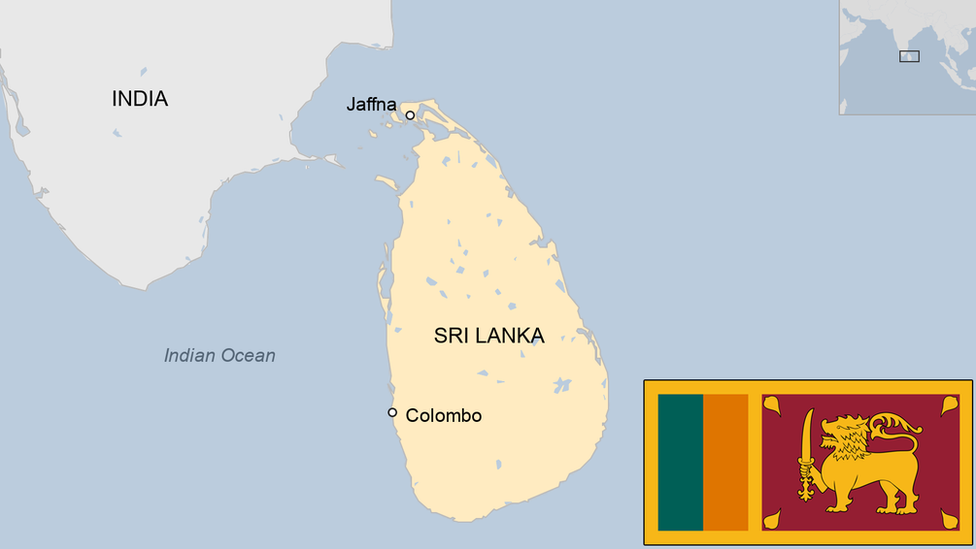Sri Lanka violence: Nationwide state of emergency lifted
- Published
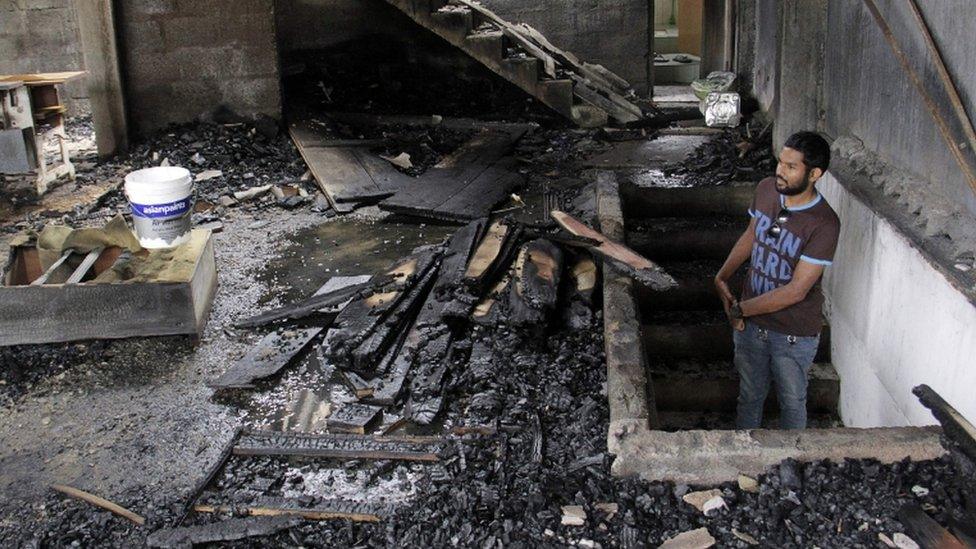
The violence left hundreds of Muslim-owned businesses and homes damaged
Sri Lanka has lifted a state of emergency imposed on 6 March in response to an outbreak of violence against Muslim communities.
Two people were killed, nearly 450 Muslim-owned homes and shops damaged and 60 vehicles burnt in attacks in the central district of Kandy.
Curfews and social media bans were brought in to try and quell tension.
Violence has risen in the Buddhist-majority country since 2012, said to be fuelled by hard-line Buddhist groups.
They have accused Muslims of forcing people to convert to Islam and vandalising Buddhist archaeological sites. Dozens of Muslim religious sites have also been damaged.
Police have so far arrested almost 300 people, including a hardline Buddhist organisation leader they suspect of inciting the violence.
Under the state of emergency, Sri Lankan authorities were able to arrest and detain suspects for long periods if they deemed it necessary.
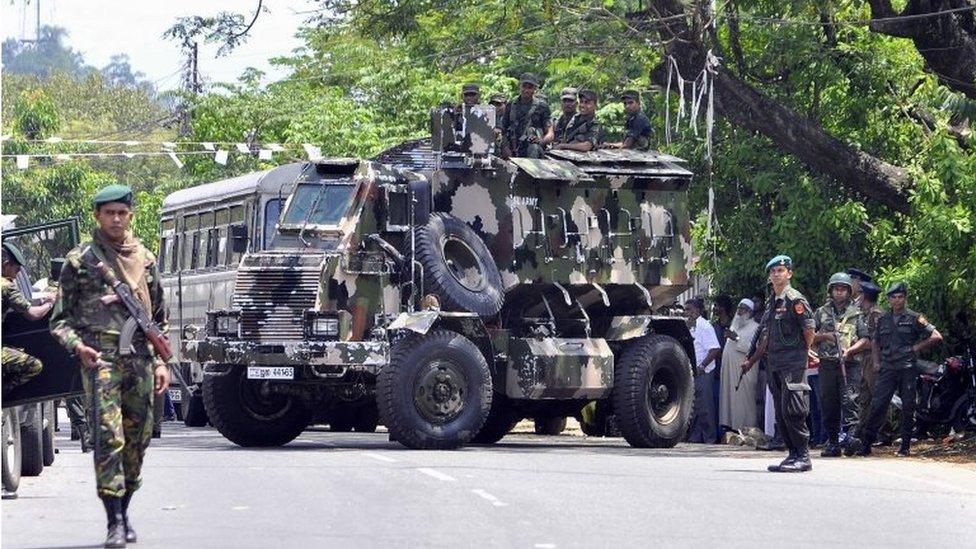
Police commandos patrolled the streets following the anti-Muslim riots broke out
Hundreds of troops were deployed to the Kandy area, and tear gas was used after some groups continued to defy government curfews.
President Maithripala Sirisena announced he was lifting the measure on Sunday on his Twitter feed, having assessed public safety.
Nationwide bans on social media websites including Facebook were also lifted earlier this week.
It was the first time in seven years Sri Lanka had imposed a state of emergency.
The country was under the measure for nearly three decades when the government fought Tamil rebels in the civil war that ended in 2009.
- Published7 March 2018
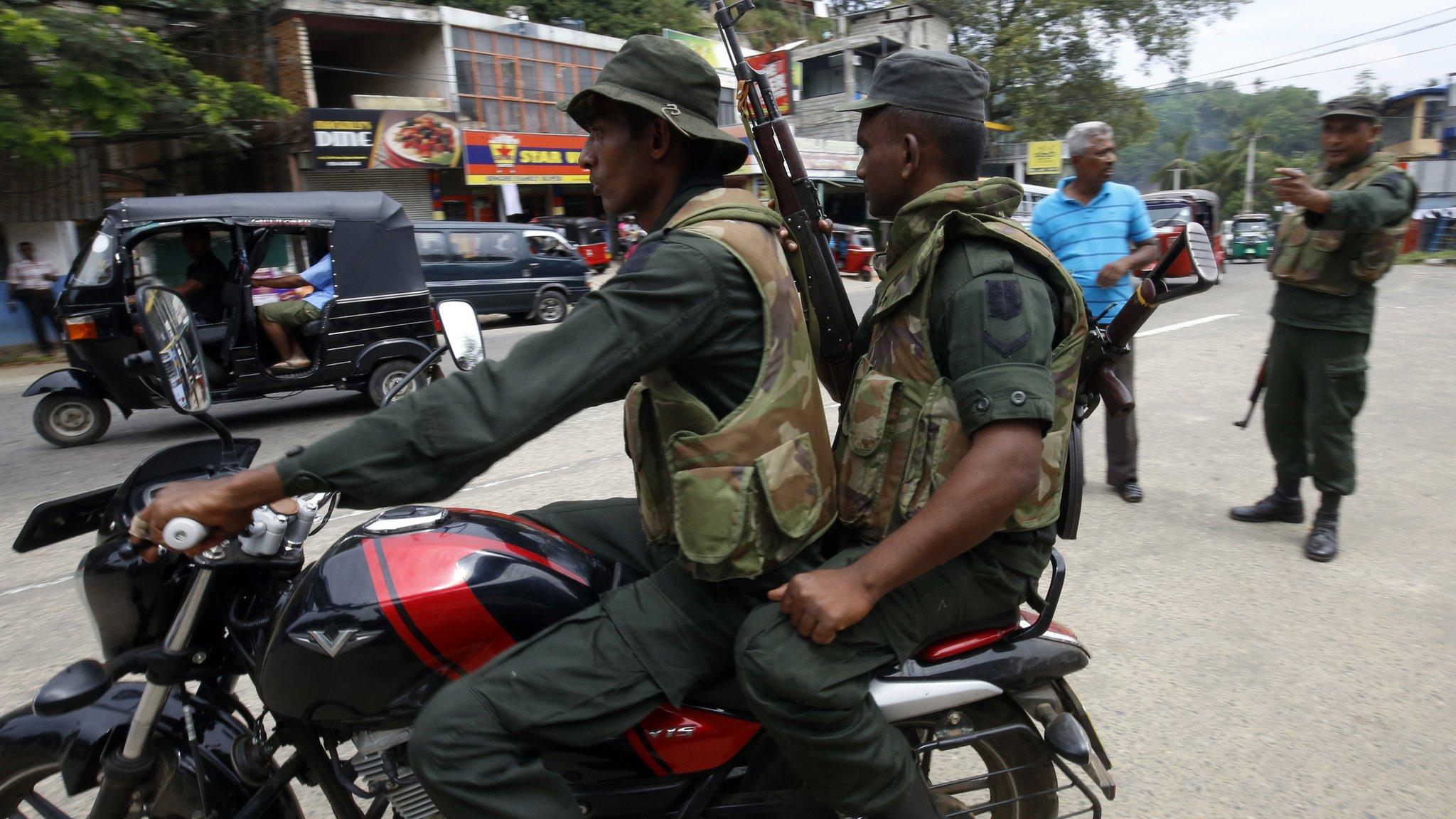
- Published6 March 2018
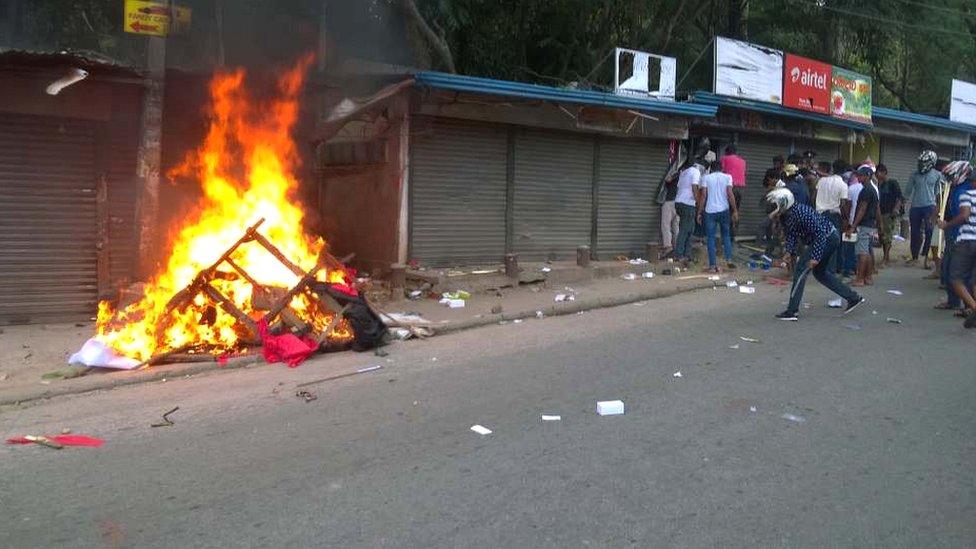
- Published18 November 2017
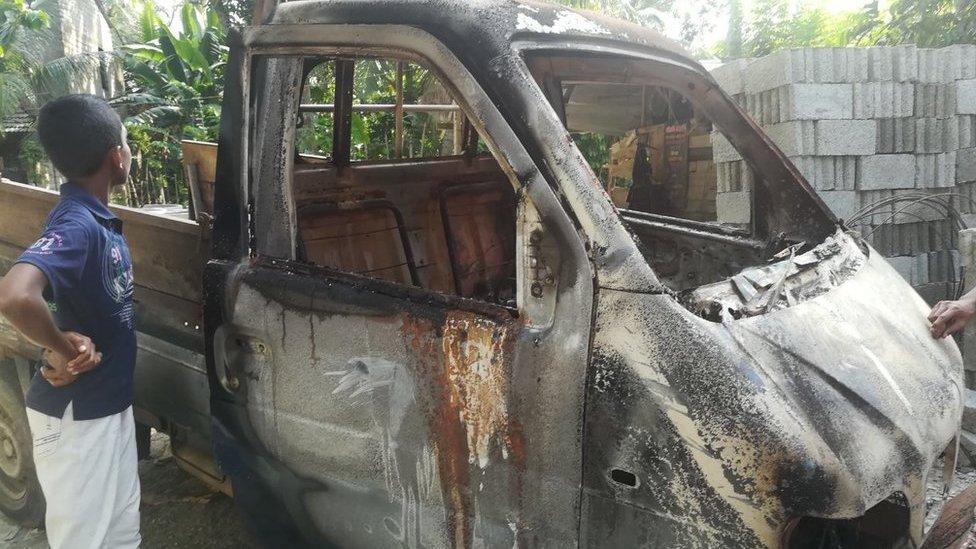
- Published18 November 2017
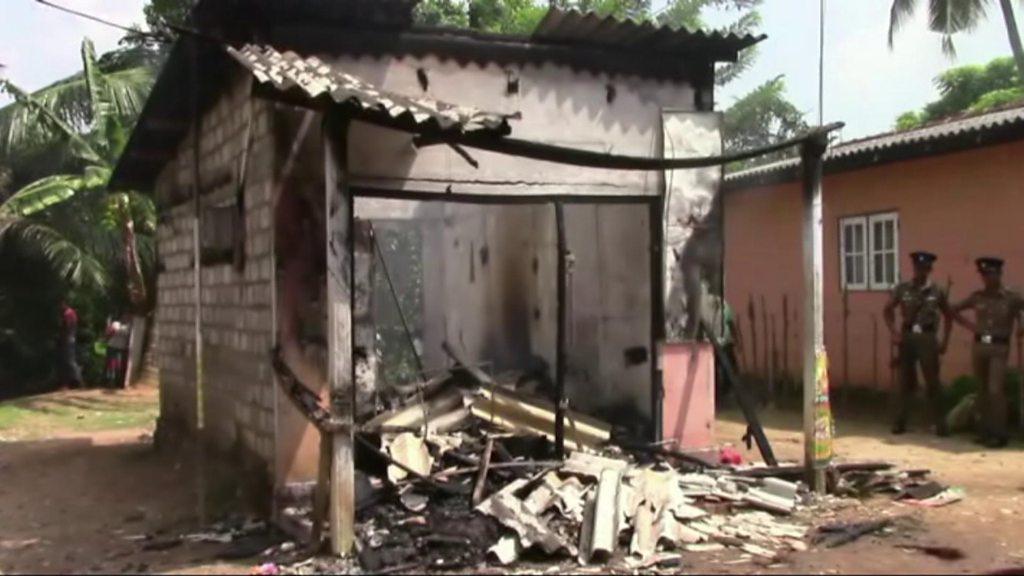
- Published17 June 2014
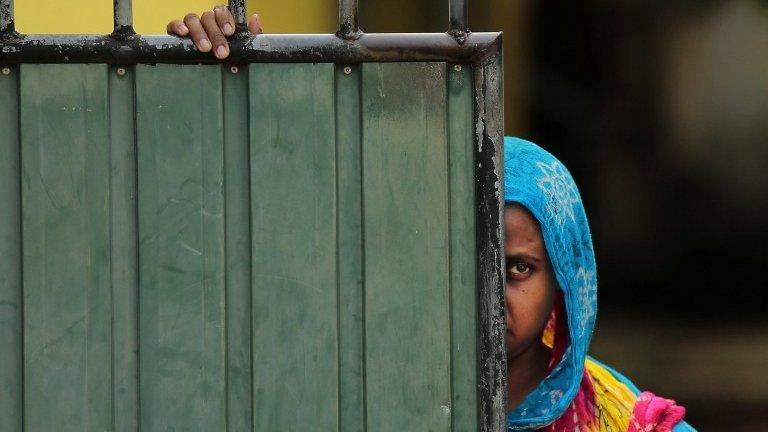
- Published25 June 2014

- Published4 October 2024
